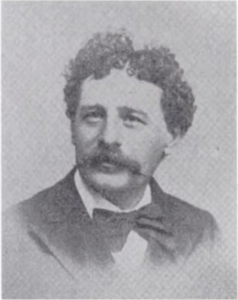
Photo info ...
Credit: Indiana State Library
(Mar., 1845-Dec. 7, 1913). Born and educated in Bavaria, Germany, Philip Rappaport came to the United States in 1863. Settling first in Wheeling, West Virginia, he later moved to Pittsburgh and then to Cincinnati where he studied law. In 1873, Rappaport moved to Indianapolis and went into practice with Robert Parker, retiring several years later due to deteriorating hearing.
In 1874, he also purchased the German DailyTribüne, later known as the Indiana Tribüne, serving as both editor and publisher until 1900 when he sold the paper to August Tamm. After the marriage of his daughter, Emma, to in 1893, Rappaport hired Lieber as a reporter. Following the sale of his paper, Rappaport continued to write and lecture on a series of economic and social issues.
Considered a prominent freethinker, Rappaport’s best-known book was , described by the as “a speculative political treatise of a decidedly socialistic tone.” Vehemently opposed to William Jennings Bryan’s economic theories, he played an active role in the 1896 presidential campaign by making frequent speeches against Bryan and his policies to the German American Community.

Help improve this entry
Contribute information, offer corrections, suggest images.
You can also recommend new entries related to this topic.